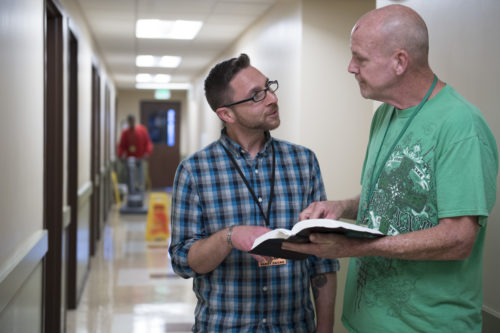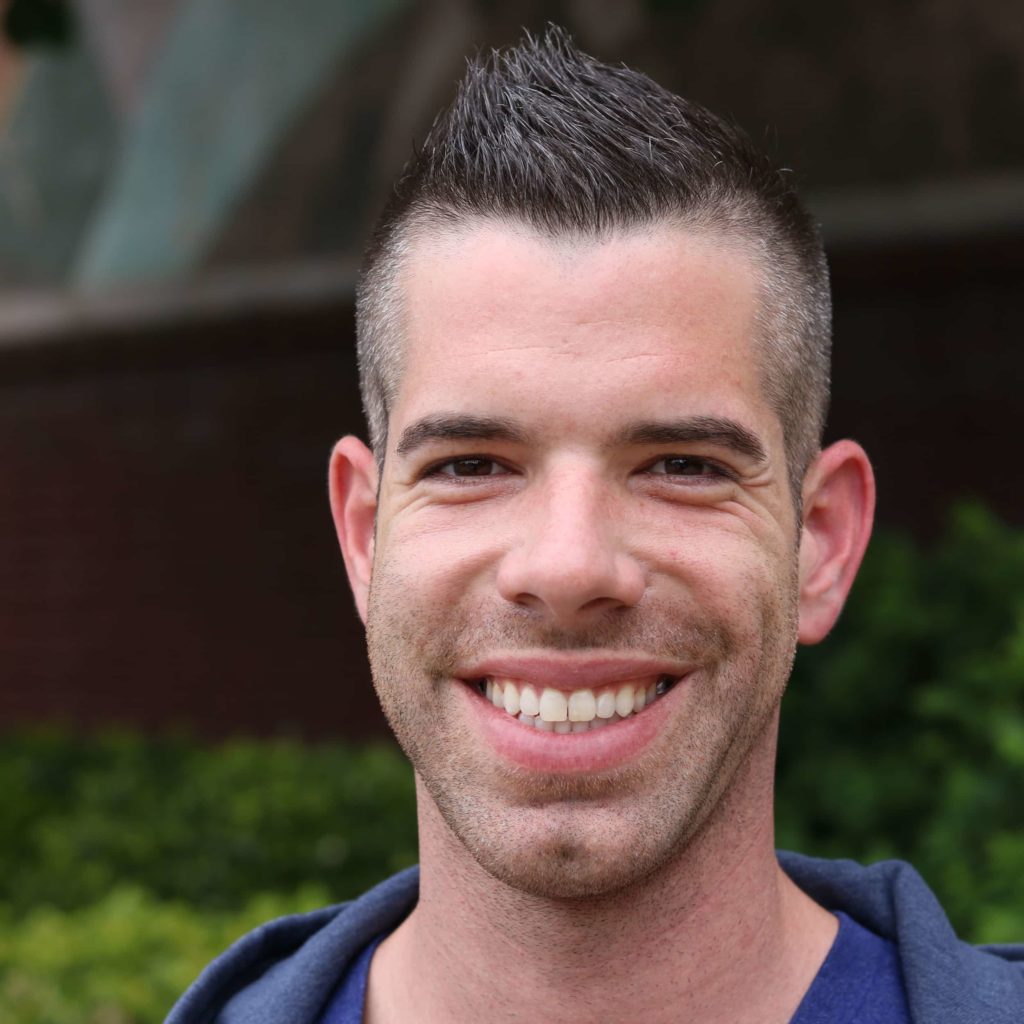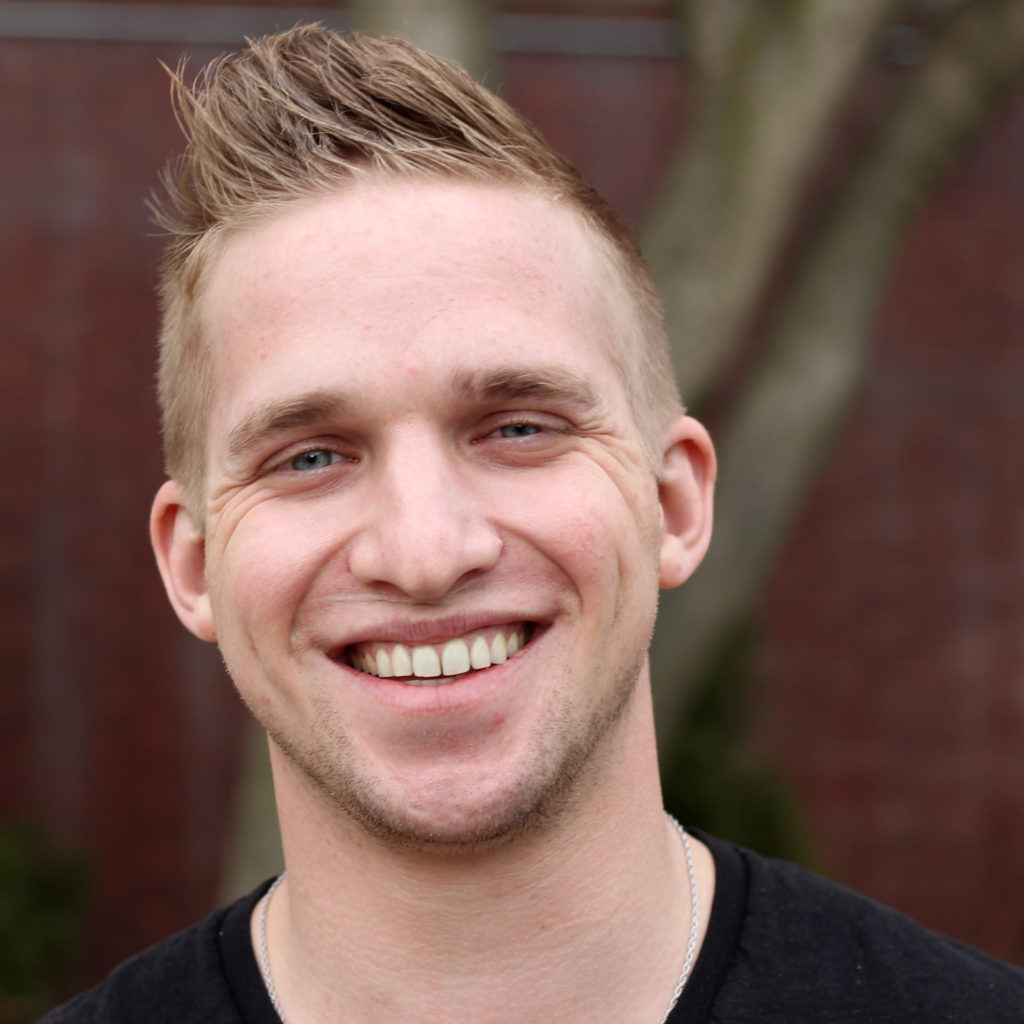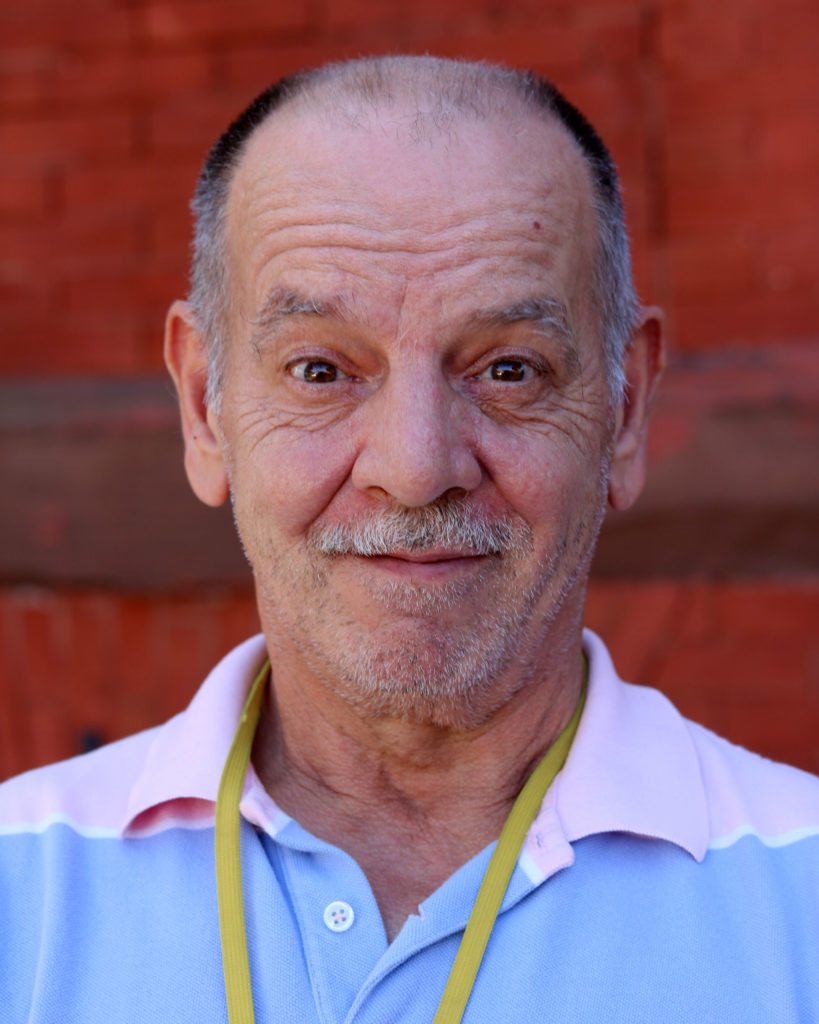Randy says that it is all about relationships. Randy grew up Catholic, but by the time he was 10 years old, his family stopped going to church. As he got a little older, he tried to find something spiritual. He says that “he always believed there was a God, but not in the structured way, or [he] only conceived of an angry, resentful God.” Randy always thought of himself as a good person, to whom bad things happened. Before entering the one-year residential Spiritual Recovery Program (SRP) at Helping Up Mission (HUM) in 2016, Randy lost his father, mother and close friend all within a very short period of time. Maybe he had to lose all of these people to stand on his own and establish new relationships.
In the first few days at HUM, instead of losing people, he started to gain real friends. Kim Lewis, one of HUM’s Board members who co-leads the Choir and Band with Kirk Wise, invited Randy to join the choir only days after entering the SRP. Randy had never sung publically, although he had always performed in orchestra and band. He was extremely nervous when he started singing, particularly as he was one of two men singing tenor high parts. Choir helped fill up his weekend with positive activity when he was on “blackout” (restricted to campus for 45 days). Now, Randy has joined the choir at his “home church”, St. Leo’s in Little Italy, and sings regularly at mass. He also attends recovery meetings on Sunday and Wednesday.
Music has become a huge part of his life. Randy comments, “It calms me down and has so much emotion”. Kirk also teaches a class called “The Power of Music”. Randy remembers a specific song that powerfully impacted him called “The Sower”. It compares people to soil and that with hard soil, God has to get in there and help break it down before nutrients and seed can be planted. A massive tree emerges as the result of the hard work.
Miss Kim also connected Randy to Monday night Bible Study at HUM, which is part of Randy’s weekly routine. Randy started helping out with playing the videos for Monday night Bible study, which taught him how to use the A/V system, a skill needed for Treatment Intern duties that were eventually assigned to him. Another door opened!
The Spiritual Retreats have also provided vital opportunities for life change. In the past and when he first entered the SRP at HUM, he always had to fill his time and space – filling the boredom led to drug use. But now, he feels better, describing this as “inner peace”. Randy explains, “I’m OK with myself”. He has moved from bored
om (or fear of it) to calm. He credits the spiritual retreats as part of this, attending Camp Wabanna, Bon Secours and CREDO.
Camp Wabanna contributed to this calm Randy feels by helping him be by himself. Randy doesn’t play sports, and so he spent time in the beautiful environment sitting and reading his Bible. Within a group of 300 men in the SRP at one time, it can be easy to just see people in passing, but Randy felt that he took the time to really get to know people on this retreat.
At Bon Secours, he learned a discipline called the “Daily Examen”, crediting it for changing his life and outlook. He says, “It has put a new spin on life”. He used to think about what he didn’t do or accomplish in a day, but after learning the examen, he is reviewing what he accomplished over the day. It has turned his all of his thoughts from negative ones, to positive! He is sleeping better as a result, too.
Additionally, Randy has realized life “isn’t all about [him]”. Instead of reacting to everything in dramatic fashion, he is praying about things. He hadn’t realized before how much anxiety he was experiencing before because he dealt with it by “drinking and drugging”. He has realized that whatever is going on won’t kill him and that everyone has to suffer sometimes. He is starting to see things through God’s eyes and in a Christ-like form. He has been “promoted” to an Intern at HUM, and where he gets so much joy out of seeing other people grow – he’s so grateful.
Randy is really learning how to build relationships
Randy has now been at HUM for nearly one year, he is performing his role as an Intern in the Treatment Office, and has entered a process of discernment with the Catholic Church about priesthood. He is seeking balance in life rather than vacillating between working crazy amounts and avoiding people with “me time”. He is learning to take little of everything at the “buffet of life”, but not overindulging on anything. Randy is really learning how to build relationships and says that “he never had friends like at HUM.”
Randy helps other people find their path!
In his role as an Intern, Randy has to deal with a lot of different personalities. He learns that he can’t put expectations on people because they all come from different backgrounds. And he is learning how to manage his own expectations about himself. If he can make it through the day without a drink, that is enough sometimes. This is some good training for him, particularly if he receives a call to priesthood, as he looks forward to working with people from all walks of life and helping them find their own way. This is really what gives him joy – helping other people find their path! And, it would not have been possible without the integration of spirituality in HUM’s programs.



